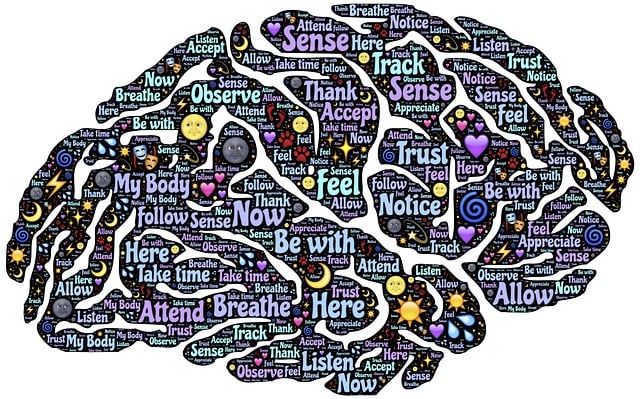Longmont's diverse population, including a significant French-speaking community, highlights the unique need for Longmont French Speaking Therapy. To overcome language and cultural barriers in traditional mental healthcare, tailored outreach programs like Stress Management Workshops are crucial. These initiatives enhance comfort, understanding, and stress management skills, breaking down stigma and encouraging support-seeking behaviors. Success is measured through qualitative and quantitative assessments of participant engagement, satisfaction, and well-being improvements. Integrating these programs into local organizations benefits the entire community, fostering a culture of positive thinking and depression prevention.
Longmont, a diverse community with a growing French-speaking population, presents unique opportunities and challenges. This article explores the critical role of community outreach programs in addressing mental health needs among this demographic. We delve into strategies for implementing effective therapy and support services tailored to their cultural context. Additionally, we discuss methods for measuring success and ensuring long-term sustainability, highlighting best practices for Longmont French-speaking therapy and community growth.
- Understanding the Need for Community Outreach Programs in Longmont's French-Speaking Population
- Implementing Effective Therapy and Support Services
- Measuring Success and Building Sustainability within the Community
Understanding the Need for Community Outreach Programs in Longmont's French-Speaking Population

In Longmont, home to a significant French-speaking community, there is a unique need for Longmont French Speaking Therapy and cultural sensitivity in mental healthcare practices. The city’s diverse population brings a range of cultural backgrounds and linguistic preferences, requiring tailored support for mental health services. Many individuals within this community may face barriers to accessing traditional therapy due to language differences, cultural misconceptions, or a lack of understanding about available resources.
Implementing outreach programs that cater to French-speakers is vital. These initiatives can include Stress Management Workshops designed specifically for cultural considerations and organized by mental health professionals who share the same linguistic background. By offering such workshops, the community can gain valuable tools for managing stress and improving overall well-being while also fostering a sense of comfort and understanding around mental health issues. Raising mental health awareness through these programs is key to breaking down stigma and encouraging individuals to seek the support they need.
Implementing Effective Therapy and Support Services

Implementing effective therapy and support services within a community is a multifaceted process that requires careful consideration of diverse needs. For instance, in areas with a significant French-speaking population like Longmont, providing access to French speaking therapy becomes an essential component of inclusive mental health care. This involves both recruiting therapists who are fluent in French and ensuring the availability of resources tailored to address cultural nuances and language barriers.
Integrating Mind Over Matter principles can significantly enhance these efforts. By promoting self-care practices and empowering individuals with coping strategies, communities can foster resilience and reduce reliance on external support. Additionally, Mental Health Policy Analysis and Advocacy plays a crucial role in shaping accessible and culturally competent services. This involves advocating for policies that prioritize funding, training, and resources dedicated to addressing the unique needs of diverse populations, including French speakers, while also focusing on effective stress management techniques.
Measuring Success and Building Sustainability within the Community

Measuring the success of community outreach programs, like those offering French speaking therapy in Longmont, is a multifaceted process. It involves assessing both qualitative and quantitative outcomes to ensure the initiative resonates with the target population. By tracking participant engagement, satisfaction levels, and the tangible improvements in emotional well-being promotion techniques, organizers can gauge the program’s effectiveness. For instance, regular feedback sessions and follow-up surveys help identify areas for enhancement while highlighting successful strategies.
Building sustainability within the community requires fostering a culture of positive thinking and depression prevention. This can be achieved through ongoing partnerships with local organizations, schools, and businesses, integrating these initiatives into the fabric of Longmont’s cultural landscape. By seamlessly integrating therapeutic services into community events and educational programs, French speaking therapy becomes not just an isolated service but a vibrant component of the region’s overall mental health ecosystem. Such integration ensures long-term viability and encourages continued participation, ultimately contributing to the emotional well-being of the entire community.
Community outreach programs, particularly tailored for Longmont’s French-speaking population, offer a promising path toward enhancing mental health services. By implementing effective therapy and support, as discussed, we can address the unique needs of this community. Measuring success through accessible data and fostering sustainability ensures that these initiatives remain impactful over time. Through collaboration and an adaptive approach, Longmont French-speaking therapy can thrive, positively influencing the well-being of many.














